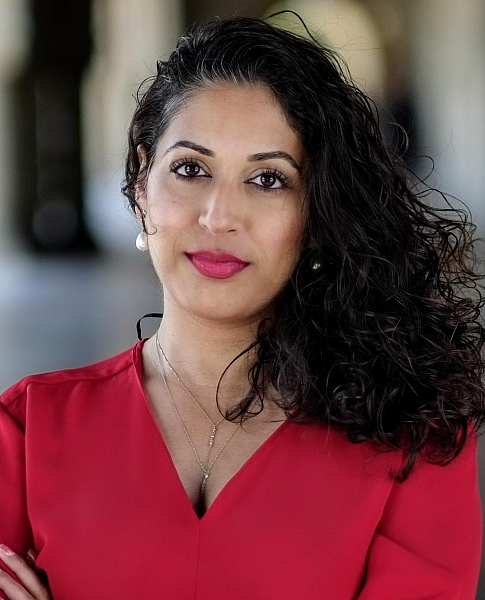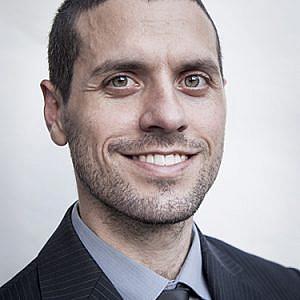Get the Story on the Coronavirus Crisis
Every day brings a flurry of new coronavirus headlines and a growing number of cases around the globe. While China remains the epicenter of the outbreak, experts warn a global pandemic could wreak havoc on health systems and vulnerable populations. There has not yet been a major disease outbreak to date in the U.S. and experts say the current risk to Americans is low. But concerns are growing and that could quickly change if measures to curb the virus fail. Meanwhile, a barrage of news reports has spurred a wave of xenophobia and racist attitudes towards Asians and Asian Americans. In this webinar, you will hear the latest updates from top experts and a leading journalist tracking the story, providing crucial context and insights for reporting responsibly on this fast-moving public health threat.
Webinars are free and made possible by The Commonwealth Fund and the National Institute for Health Care Management Foundation.
Panelists

Emily Baumgaertner is a medical reporter for the Los Angeles Times focused on investigations and features. She joined the Los Angeles newsroom in 2019 from The New York Times’ Washington bureau. Baumgaertner reported from the 2014-16 Ebola epidemic in West Africa and the 2016 yellow fever outbreak in the D.R. Congo as a Pulitzer Center on Crisis Reporting grantee. She earned her master of public health degree from the George Washington University after conducting prenatal research in a Madagascar rain forest. She is a native of New Haven, Connecticut.

Dr. Seema Yasmin is a journalist, author, medical doctor and professor. Yasmin served as an officer in the Epidemic Intelligence Service at the U.S. Centers for Disease Control and Prevention where she investigated disease outbreaks and was principal investigator on a number of CDC studies. Yasmin was a finalist for the Pulitzer Prize in breaking news in 2017 with a team from The Dallas Morning News and recipient of an Emmy for her reporting as a Center for Health Journalism Fellow on neglected diseases. In 2017, Yasmin was a John S. Knight Fellow in Journalism at Stanford University investigating the spread of health misinformation and disinformation during epidemics. She has served as a science correspondent at The Dallas Morning News, medical analyst for CNN, and professor of public health at the University of Texas at Dallas. She trained in medicine at the University of Cambridge and in journalism at the University of Toronto. Her first book, “The Impatient Dr. Lange,” charts the course of the HIV/AIDS pandemic and the life of a scientist who fought to end the outbreak. Her second book, “Debunked!” dissects medical myths and pseudoscience and explores why we believe what we believe. She teaches science journalism and global health storytelling at Stanford University.

Dr. Michael Mina, M.D., Ph.D. is an assistant professor of epidemiology at Harvard T. H. Chan School of Public Health and a core member of the Center for Communicable Disease Dynamics (CCDD). He also serves as associate medical director in clinical microbiology in the Department of Pathology at Brigham and Women’s Hospital at Harvard Medical School. Mina’s research combines mathematical and epidemiological models with serum-based laboratory investigations, and includes the development of new technologies and statistical methods to better understand the consequences and patterns underlying infectious diseases. In addition to his interests in infectious diseases, his research also explores more fundamental questions of immunity and immune responses. He earned his M.D. and Ph.D. degrees from Emory University, with his doctoral work split between the CDC, St. Jude Children’s Research Hospital, the Respiratory and Meningeal Pathogens Research Unit in Johannesburg, South Africa, and the Emory Vaccine Center. He completed his post-doctoral work at Princeton University in ecology and evolutionary biology of infectious diseases, and at Harvard Medical School in the department of genetics. He completed his residency clinical pathology at Brigham and Women’s Hospital.
For Dr. Michael Mina's slides, click here.
For Dr. Seema Yasmin's slides, click here.
For Emily Baumgaertner's slides, click here.
Suggested reading & resources
- Dashboard: Coronavirus 2019-nCoV Global Cases by Johns Hopkins CSSE
- “What is a pandemic? Does the coronavirus qualify?” By Emily Baumgaertner, The Los Angeles Times
- “What happens if the coronavirus outbreak becomes a pandemic?” By Emily Baumgaertner, The Los Angeles Times
- “Coronavirus spreads to Los Angeles, Orange County: How concerned should we be about spread?” By Emily Baumgaertner, The Los Angeles Times
- “The coronavirus from China is new, and that makes everything dicier,” by Emily Baumgaertner, The Los Angeles Times
- “The Coronavirus Is Fueling Sinophobia. One Doctor Explains How To Combat It,” WBUR
- “Coronavirus: Symptoms, Treatments and Science,” by Roni Caryn Rabin, The New York Times
- “What happens next in the coronavirus outbreak? We mapped 8 scenarios.” By Julia Belluz, Vox
- “The coronavirus reawakens old racist tropes against Chinese people,” by John Pomfret, The Washington Post
- “Covering an epidemic is like covering conflict: Why science reporters should be trained like war correspondents,” by Seema Yasmin, Medium
- “Column: Coronavirus, the outbreak narrative and how our fear fuels our xenophobia and racism,” by Frank Shyong, Los Angeles Times
